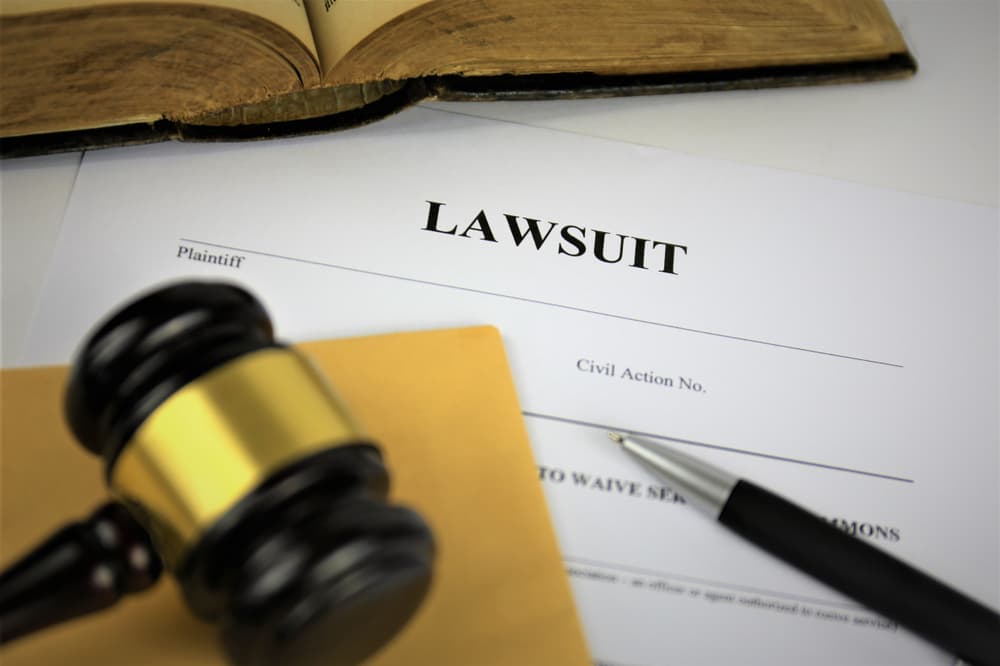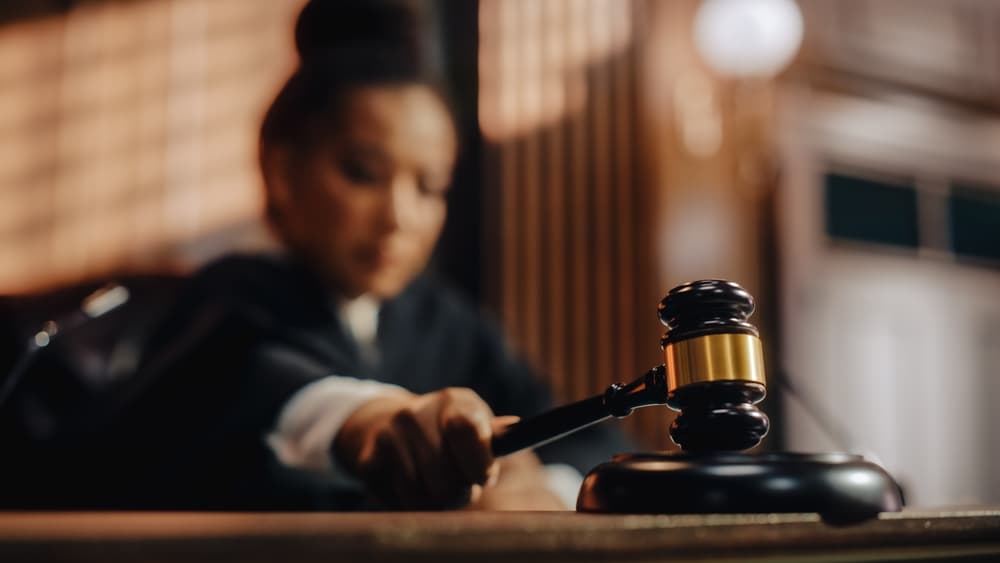A truck accident can cause physical injuries and leave you with emotional trauma and devastating financial burdens. Victims of truck accidents and their family members deserve adequate compensation for all the damages and losses they suffer. One way to get fair compensation is by filing a lawsuit.
Knowing the steps involved when filing a lawsuit may help build a strong case and ensure you take the right action. However, filing a truck accident lawsuit may be complex and involves many legal formalities and deadlines.
For this reason, victims of truck accidents often require the assistance of an experienced truck accident lawyer who can provide them with the guidance they need and will fight on their behalf to achieve the best possible resolution.
Who Can You Hold Liable in a Truck Accident Lawsuit?

About 151,000 people suffered injuries in accidents with large trucks in a recent year.
While truck drivers are responsible for a large number of such accidents, they may not be the only liable party. Every case is unique, and liability depends on the accident’s circumstances.
Below is a breakdown of the parties you can potentially hold liable when filing a truck accident lawsuit:
- Truck driver. If a trucker violates any traffic laws or trucking regulations, which leads to an accident, they may bear full or partial responsibility for the accident.
- Trucking company. If a trucking company fails to ensure proper vehicle maintenance, hire a qualified driver, or comply with any other safety regulations, the victim can sue the company in a lawsuit.
- Cargo loader or shipper. If an accident occurs due to improper loading or securement of the cargo, the individual or entity responsible for cargo loading or shipping can bear responsibility.
- Mechanic or repair shop. If an accident results from inadequate maintenance, the mechanic or repair shop responsible for inspecting and maintaining the vehicle may be liable.
- Truck or parts manufacturer. If a trucking accident results from defects in the vehicle or its parts, the manufacturer may be partially or fully to blame.
- Government agency. If an accident occurs due to improper oversight of the roadways, highways, or road infrastructure, the government agency responsible for maintaining that area may be liable.
- Other motorists. Often, trucking accidents involve more than two vehicles. In such cases, the fault may lie with other motorists if the truck driver was not negligent in the truck’s operation.
Identifying liable parties in a truck accident case involves a detail-specific analysis of the circumstances surrounding the crash and careful collection of all available evidence.
Some of the most crucial evidence that may play a significant role in a truck accident lawsuit include police reports, witness statements, medical records, photographs from the accident scene, camera surveillance footage, vehicle maintenance records, black box data, the driver’s logbook, and many others.
Elements to Prove in a Truck Accident Lawsuit
To win a truck accident lawsuit, a plaintiff (the party who initiates legal action) must establish the defendant’s negligence.
This involves proving the four elements of negligence:
- The defendant had a duty to exercise reasonable care (e.g., a truck driver owes a duty of care to other occupants of the road);
- The defendant breached the duty by failing to exercise reasonable care (e.g., a truck driver makes an unsafe lane change without signaling or checking their surroundings);
- The breach caused the truck accident (this element is also known as “causation”), and
- The plaintiff suffered injuries or losses due to the defendant’s breach.
Motorists have a duty to use reasonable care to avoid causing injuries to others on the road. If they breach that duty, they are responsible for any resulting damages. When several parties share liability – as is often the case in truck accident cases – proving the above-mentioned elements may become even more complicated. They may require the assistance of a lawyer.
The Steps for Filing a Truck Accident Lawsuit
Typically, truck accident victims have to take these steps before filing a lawsuit:
- Hire a lawyer. Technically, you can file a lawsuit alone, but doing so may jeopardize your right to recover the monetary compensation you deserve. If you are preparing to take your case to trial, consider hiring a skilled lawyer with negotiation and litigation skills. Your lawyer will handle all the paperwork and communication on your behalf while you can focus on healing and spending time with your family during this difficult time.
- Gather evidence. Before filing a truck accident lawsuit, you need to ensure that you have all the evidence to prove the above-mentioned elements of negligence. Your lawyer will collect and preserve every available piece of plausible evidence to build a strong case on your behalf. This step is essential when requesting compensation through an insurance claim or filing a lawsuit.
- Write a demand letter. Typically, truck accident victims attempt to recover damages through an insurance claim before filing a lawsuit. Litigation is often viewed as the avenue of last resort because it is costly, time-consuming, and does not guarantee a satisfactory outcome. When filing a compensation claim, your lawyer will write a demand letter conveying your claim’s merits to the insurance company. The insurer will either honor your demands or challenge the requested amount and engage in negotiations.
- Negotiate a settlement. If the insurance provider does not accept your demand letter, you may still have a chance to negotiate a reasonable settlement. However, insurers are not always willing to provide fair settlements because every insurance company is a business that thrives when it receives more money than it pays out to claimants. When negotiating with the insurer, you need to know the full scope of your damages so that you do not settle for less than you deserve. If the insurer’s offer is too low, your lawyer may advise you against accepting the offer and may tell you that filing a truck accident lawsuit is the best way to proceed.
While most truck accident cases result in out-of-court settlements, some may go to court. You might want to discuss the specifics of your case with a lawyer to know all of the legal options and remedies available to you.
What Happens After Filing a Truck Accident Lawsuit?

Often, victims of truck accidents are reluctant to file lawsuits simply because they do not understand what to expect during litigation. Typically, a lawsuit is necessary when the parties cannot negotiate a settlement outside of court.
At this point, you can either file a lawsuit yourself or have an attorney handle the legal side of things on your behalf.
Below is a breakdown of what happens after a plaintiff initiates legal action against the defendant(s):
- Serving the defendant(s). After filing the initial paperwork, the next step is to serve the defendant(s) named in the lawsuit with a copy of the summons or complaint. This step officially notifies the defendants of the ongoing legal action and gives them time to file a response and prepare for litigation.
- Discovery. Both sides – the plaintiff and defendant – engage in discovery to begin preparing for trial. Discovery is when the parties exchange information about the evidence and witnesses they will present at trial.
- Pre-trial motions. Before the trial, both sides may file various motions, such as a motion to exclude evidence (when they believe the other party’s evidence presented during the discovery stage is not admissible) or a summary judgment motion.
- Settlement negotiations. Often, parties engage in settlement negotiations before their case proceeds to trial. These negotiations are their last attempt to resolve the case without going to trial.
- Trial. Both sides will present their cases at trial by introducing evidence and calling witnesses to testify. The plaintiff makes arguments supporting their case to prove the defendant’s liability and the damages they have suffered. On the other hand, the defendant will present their defense, challenge the plaintiff’s evidence, and make arguments to prove that they are not liable for the plaintiff’s damages. If the truck accident lawsuit takes place before a jury, the jury will decide the case’s outcome.
- Verdict and award. After the sides present their cases and make their arguments, the juries will depart to a separate room to render a verdict. If the defendant is found liable, the court will award compensation as “damages” to the plaintiff. They can appeal the decision if either side is unsatisfied with the outcome.
A lawyer can walk you through the entire trial process to make it less intimidating and confusing. Legal counsel can significantly differentiate between getting fair financial compensation and walking away with nothing.
Your attorney will prepare and practice your responses to ensure you feel more confident and comfortable walking into the courtroom.
What Damages Are Available in a Truck Accident Lawsuit?
If a plaintiff prevails in their truck accident lawsuit and the defendant is legally at fault, the plaintiff can receive an award of damages. Damages refer to the money plaintiffs can recover as compensation for their injuries and losses.
In a lawsuit after a truck accident, the injured party or surviving family members of those killed can obtain compensatory and punitive damages.
Compensatory damages, which compensate the plaintiff for their expenses and losses, are divided into two categories:
- Economic damages. These damages include any objectively verifiable financial burdens the plaintiff has suffered and is expected to suffer in the future. Economic damages include medical expenses (medical bills, hospitalization and rehabilitation costs, etc.), lost income, diminished earning capacity, vehicle repair/replacement costs, etc.
- Non-economic damages. These damages refer to compensation for any losses that are not financial and are more subjective in nature. Some common examples of non-economic damages in truck accident cases include pain and suffering, loss of consortium, loss of enjoyment in life, emotional distress, and other damages that are difficult to attach a dollar value to.
The plaintiff may receive punitive damages to punish a fraudulent, malicious, reckless, willful, or oppressive defendant.
Why You Need a Lawyer When Filing a Truck Accident Lawsuit
Securing compensation through a truck accident lawsuit involves many complicated steps. As someone who has been traumatized by getting into an accident or devastated by the loss of a loved one, you may not go through all these steps alone.
A lawyer can navigate the process and take all necessary steps to protect your rights. After a truck accident, you may not be 100 percent confident that filing a lawsuit is the best way to proceed, as litigation can be lengthy, costly, and risky.
A lawyer will review all the facts of your case and advise you on your legal options, one of which may be taking your case to court. Your lawyer will also investigate how the accident occurred, identify liable parties, and gather/preserve all available evidence before it is lost or destroyed.
Time is of the essence when filing a truck accident lawsuit due to the statute of limitations. Contacting a lawyer early in the process can provide peace of mind, knowing that you can adhere to all the legal requirements and deadlines to keep your case on track.
In many cases, victims of truck accidents have to go up against trucking companies when filing a lawsuit. These companies typically have dedicated legal teams whose primary job is to limit their liability. Having a lawyer on your side can level the playing field and protect your right to fair and full compensation.
Seek Your Free Consultation with a Truck Accident Lawyer
After a truck accident, seek guidance. Our experienced truck accident attorneys provide free consultations to help victims understand their legal options. Don't delay—schedule your free consultation today to gain valuable insights into your case, assess your rights, and take the first step toward pursuing the compensation you deserve.
The longer you wait, the greater the risk you lose critical evidence. Consult a trusted personal injury lawyer near you.
